 |
|
 |
|
| As part of our regular
issue, we try to include a different member's all time
Top Ten programme choices, along with their reasons for
choosing them from the thousands of series and programmes
that have been on in the past. This issue it's the turn
of Gareth Preston to present his choices to RTS readers
and here they are! |
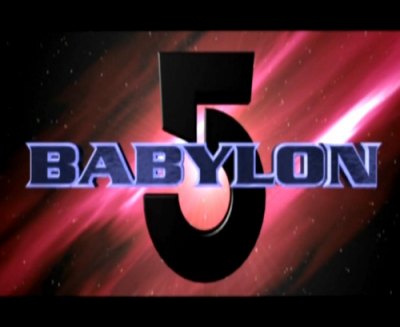 |
|||
| 10. Babylon 5 1993-1998, 4 TV Movies and spin-off series Crusade |
||||
| Babylon 5 was a show that crept up
on me. I watched the first episode on C4 and was
unimpressed. It seemed to be the worst kind of TV SF,
lots of made up names, bizarre hairstyles and
over-earnest acting. So I left it, and just heard bits
and pieces about it over the next two years. The buzz was
very positive and when C4 were showing the last four
episodes of season two, I tuned in again and was taken
back by the originality and sophistication. This show had
done a lot of maturing. Plus it seemed to be mixing
supernatural elements like angels and satanic pacts into
a futuristic world. Intrigued, I started buying the
earlier episodes on tape and was drawn in to J Michael
Straczynski’s "novel for television". It’s a groundbreaking show and some of its innovations are still to be picked up on by today’s show. It presented us with a complete future world, filled not only with vast space fleets and bizarre aliens, but public toilets and a Jew wondering if an off-world dish is kosher. Its regulars were often deeply flawed people but they still fought for their principles. But they made mistakes and we watched them deal with the consequences. They grew and changed in surprising ways. Before B5, episodes of US TV shows tended to be self-contained, designed to be switched on and watched in any order. By the time the series went off the air, the phrase "story-arc" had entered the everyday language of TV writers. B5 is a celebration of the simple but profound power of storytelling. |
||||
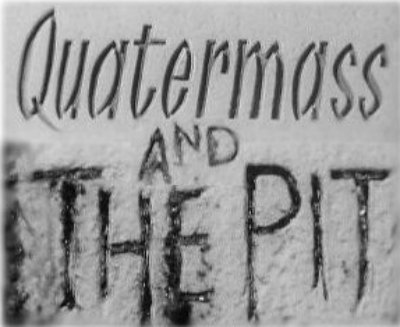 |
|||
| 9. Quatermass
and the Pit 1958 (also feature film) |
||||
| An amazing production, made all the
more impressive by the relatively primitive conditions in
which it was produced. Nigel Kneale’s literate
script provides a great foundation, combining imaginative
SF speculation with a lovely eye for domestic details.
Rudolph Cartier’s created a series steeped in an
atmosphere of growing menace and unease. The design of
the alien spacecraft is simple but unearthly. The
Martians are believable and menacing. There are sequences
which have entered into the folklore of television, such
as the terrified workman Sladden being pursued by a
psychic force, realised brilliantly by the Radiophonic
Workshop as a frightening inhuman pulsing. Other
highlights include the appearance of Hob above London and
the archaeological site twisting into life. But
there’s also time for humour and characters, such as
the formidable tea leaf reader and the frightened
policeman explaining the history of a haunted terraced
house. Kneale’s Professor Quatermass is one of the best scientists in fiction, brilliant and visionary but with feeling of responsibility for his work. Here he gains extra dimensions as a defender of liberal, rational thought in a blinkered world. The recent DVD restoration has only increased my admiration for this landmark drama. |
||||
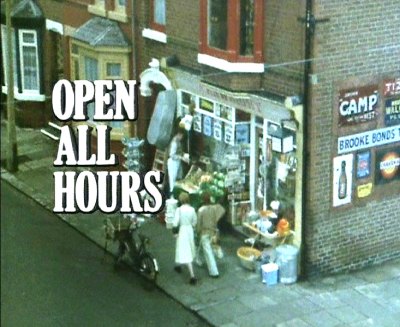 |
|||
| 8. Open All
Hours 1973 (pilot in Seven of One), 1976-1985 |
||||
| It is a hard choice between this or Porridge as Ronnie
Barker’s finest hour. He’s matched here by the
marvellous Lynda Baron and David Jason. Roy Clark’s
may have frittered his writing talents away in the last
decade on the depressingly formulaic Last of the
Summer Wine but I’ll always cherish these
two perfectly formed seasons of northern humour. The tiny
scale of this sitcom is part of its appeal. A small
corner shop with two rooms. A terraced street and a house
front. We know places like this and we can recognise the
types of people who live here. Arkwright and his nephew
Granville are a classic double act, two men with
different personalities trying to pull apart but
inextricably tied together in their small world. Like
most great British sitcoms, it’s a story about
losers. It has many of the ingredients for a classic
kitchen sink tragedy. But out of this scenario instead
comes hilarious comedy. Granville forever dreaming of a
rich, sophisticated life and being cut down with a few
choices words from his miserly, earthy uncle.
Arkwright’s increasingly eccentric schemes to
extract extra money from his customers. Gladys Emmanuel,
the buxom, level headed state-registered goddess across
the road fending off the attentions of her flirty grocer
whilst liking him despite herself. Not to mention a
parade of northern stereotypes through the shop door:
dour battleaxes, elderly set-in-their-ways blokes, young
struggling mothers. The show’s brilliance also lies
in finding their individualities, their tharwted
ambitions and dreams. There’s also the subtle sense
of the end of an era. It portrays a kind close knit
community that’s growing old and being replaced by a
generation who just want to move out. There’s a
Co-Op a few streets away and customers are going there.
Arkwright’s kind of corner shop is an endangered
species. From out of all this comes a show rich in jokes
and repartee, that makes low key everyday events seem
special. |
||||
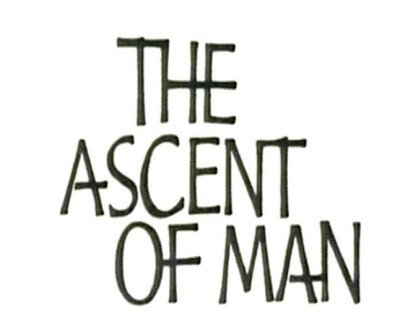 |
|||
| 7. The Ascent
of Man 1973 |
||||
| The BBC have rightly gained a
worldwide reputation for their epic documentaries but The Ascent
of Man deserves special mention for taking
on the complex, rather theoretical subject of the
development of scientific thought and making into
gripping, inspirational television. For its central
figure Professor Jacob Bronowski was the obvious choice
for the producers, but a more controversial one for the
science academic community which was suspicious of his
populalist approach and embracing of television. Frankly
they thought that he was an egotist and a smart-alec as
well. However his renaisance man qualities, as
comfortable with history, literature and art as he was
with Einstien’s theory of relativity and the
revolutionary ideas of genetic inheritance made him
uniquely qualified to draw the links between all the
aspects of humanity’s growth and present it as a
fascinating story. The series features plenty of
spectacular location filming but it is often at its most
impressive when Bronowski is finding visual metaphors for
new scientific ideas. It is a programme which has
definitely enhanced my life. |
||||
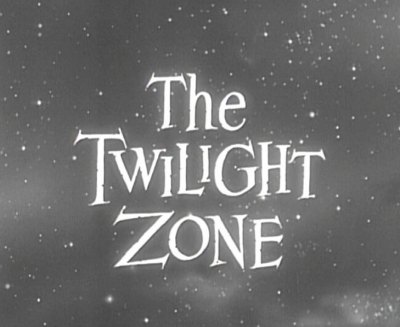 |
|||
| 6. The
Twilight Zone (original) 1959-1964 |
||||
| Few shows have used television as
cleverly as Rod Serling’s first anthology. The sets
were basic, sometimes starkly simple, the actors often
filmed in tight close-ups, lit in film noir light and
shadow. It was a programme made for black and white
grainy TV screens. Serling was the ultimate anthology
host, snappily dressed in his narrow lapeled suits, his
urbane voice a mixture of authority and conspiracy. And
what stories waited for us beyond that signpost up ahead.
A howling man in a monastery of wild bearded monks. A
woman trapped in bandages in a sinister hospital.
Astronauts vanishing from reality. Five strange
characters in a featureless steel room. A frightened
passenger watching a gremlin destroying his plane. A
world where everyone is beautiful whether they like it or
not. A loser’s reflection coming to life to change
his owner’s life. Like any anthology not every story
worked, many of the comic episodes have dated badly for
example. However when The
Twilight Zone was firing on all
cylinders, it was untouchable scary entertainment. |
||||